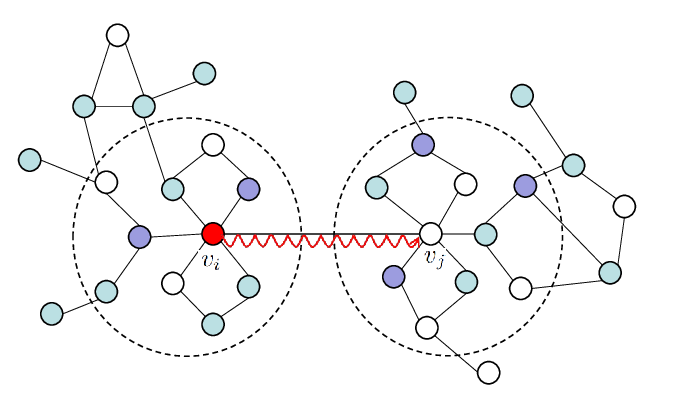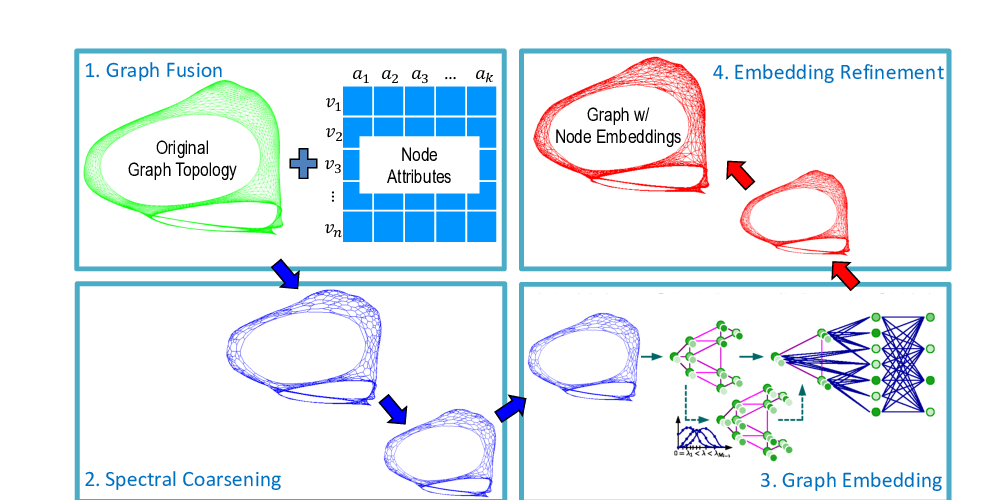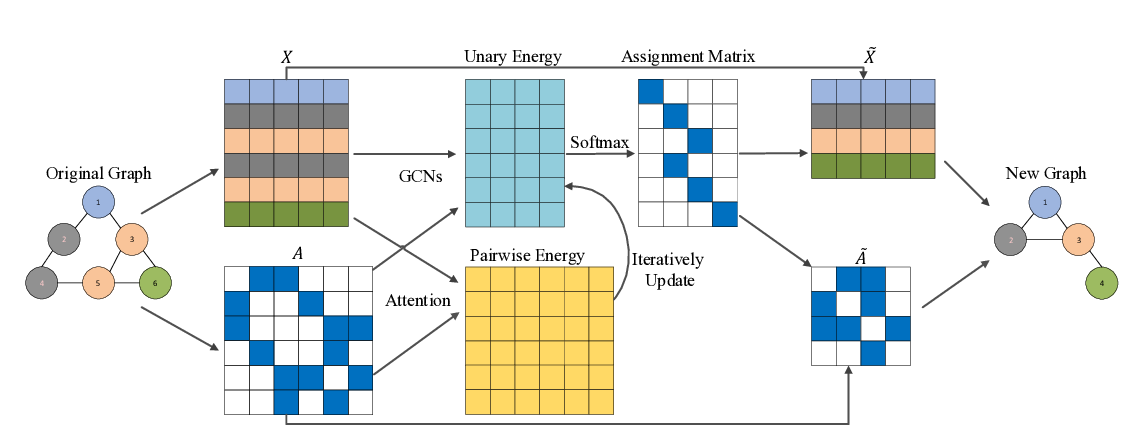Abstract:
This paper studies learning the representations of whole graphs in both unsupervised and semi-supervised scenarios. Graph-level representations are critical in a variety of real-world applications such as predicting the properties of molecules and community analysis in social networks. Traditional graph kernel based methods are simple, yet effective for obtaining fixed-length representations for graphs but they suffer from poor generalization due to hand-crafted designs. There are also some recent methods based on language models (e.g. graph2vec) but they tend to only consider certain substructures (e.g. subtrees) as graph representatives. Inspired by recent progress of unsupervised representation learning, in this paper we proposed a novel method called InfoGraph for learning graph-level representations. We maximize the mutual information between the graph-level representation and the representations of substructures of different scales (e.g., nodes, edges, triangles). By doing so, the graph-level representations encode aspects of the data that are shared across different scales of substructures. Furthermore, we further propose InfoGraph*, an extension of InfoGraph for semisupervised scenarios. InfoGraph* maximizes the mutual information between unsupervised graph representations learned by InfoGraph and the representations learned by existing supervised methods. As a result, the supervised encoder learns from unlabeled data while preserving the latent semantic space favored by the current supervised task. Experimental results on the tasks of graph classification and molecular property prediction show that InfoGraph is superior to state-of-the-art baselines and InfoGraph* can achieve performance competitive with state-of-the-art semi-supervised models.



